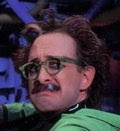I have been reading N.T. Wright's book entitled The New Testament and the People of God. He is addressing the whole notion of how do we approach the New Testament. He asks questions like, "How is the history of early Christianity to be 'relevant' for the present day?", "Why should anyone outside the Jewish or Christian traditions find any relevance in the retelling of a chapter in the history of those traditions?", and "What does it mean for the N.T. to be 'authoritative' for modern day Christians?" His preliminary answer is original and very useful. His suggestion is "Since stories are a key worldview indicator and a good part of the New Testament consists of stories, of narratives, it might be a good idea to consider how stories might carry, or be vehicles for, authority." (140) He continues by laying out a scenario where a play by Shakespeare is found that only has four acts and most of the fifth act is missing. Giving the play to experienced Shakespearian actors who would immerse themselves in the first four acts, and in the language and culture of Shakespeare and his time, and who would then be told to work out a fifth act for themselves.
Wright continues, "Consider the result. The first four acts would be the undoubted 'authority' for the task at hand. That is, anyone could properly object to the new improvisation on the grounds that some sub-plot or theme...had not reached its proper resolution. This 'authority' of the first four "acts" would not consist-could not consist!-in an implicit command that the actors should repeat the earlier parts of the play over and over again. It would consist in the fact of an as yet unfinished drama, containing its own impetus and forward movement, which demanded to be concluded in an appropriate manner. It would require of the actors free and responsible entering in to the story as it stood, in order first to understand how the threads could appropriately be drawn together and then to put that understanding into effect by speaking and acting with both innovation and consistency. This model could and perhaps should be adapted further: it offers quite a range of possibilities."
He then continues on to flesh out more possibilities, including the idea that we are in the story of God right now. We are the fifth act that is to continue on retelling the story of Jesus and to some extent Paul, just as they retold the story of God working through Israel, and Israel retold the story of how God created everything and how we fell from grace. This retelling of the story of God rings true with God's injunction throughout the O.T. to his people to never forget what He did for them and through them.
He finishes this section up with this thought: "We are looking, as the material is looking, for and at a vocation to be the people of God in the fifth act of the drama of creation. The church inherits, at the end of the story, the task of restoring to the owner the fruits of the vineyard (he uses the parable of the wicked tenants from Mark 12:1-11 earlier in the book and asks the question, "What might we do with a text like this?"). If Act 3 (the story of Jesus) is essentially tragic, the total play is to be the kind of comedy that triumphs over tragedy."
